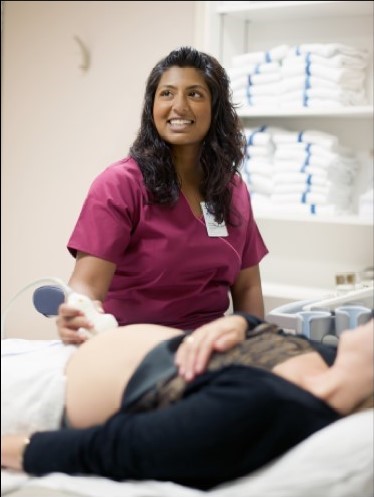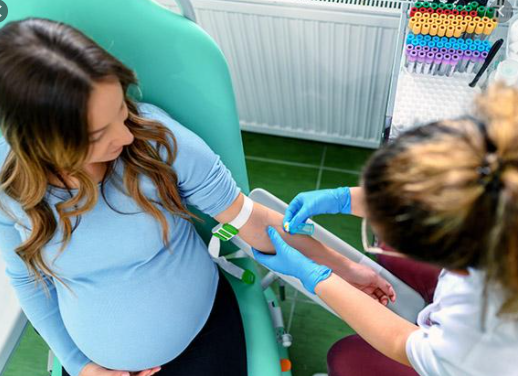toh
Ultrasound Surveillance
 During the second trimester, your doctor will order a routine ultrasound to assess the structure of your babies between 18 and 22-weeks’ gestation, which is standard for all pregnancies. The sonographer performing the scan obtains multiple images to screen for major structural differences in the anatomy of your babies. This is a lengthy exam when more than one fetus needs to be examined. Often in multiple pregnancies, all views of all structures cannot be obtained during a single visit and you may be asked to return. This does not mean there is any problem with the structure of your baby or babies. Most likely, it’s simply that the position or crowding of your babies at the moment made it impossible to obtain all required views.
During the second trimester, your doctor will order a routine ultrasound to assess the structure of your babies between 18 and 22-weeks’ gestation, which is standard for all pregnancies. The sonographer performing the scan obtains multiple images to screen for major structural differences in the anatomy of your babies. This is a lengthy exam when more than one fetus needs to be examined. Often in multiple pregnancies, all views of all structures cannot be obtained during a single visit and you may be asked to return. This does not mean there is any problem with the structure of your baby or babies. Most likely, it’s simply that the position or crowding of your babies at the moment made it impossible to obtain all required views.
If you are expecting monochorionic twins, you will be booked for a more detailed review of fetal anatomy, a Level II ultrasound examination. The sonographer will obtain additional views of the heart of each baby and measure all their long bones. This exam is required because structural differences are much more likely to occur when multiples arise from the splitting of one fertilized egg. In addition, ultrasound is key to screen for special twin conditions that can develop in monochorionic twins. The sonographer will be looking closely for any signs of these conditions starting as early as 16 weeks.
With multiple pregnancies, you can expect more frequent ultrasound visits than for a singleton. Generally, for uncomplicated dichorionic twins, once normal structure has been confirmed, ultrasound exams are done every 4 weeks during the second trimester to assess fetus growth. In uncomplicated monochorionic twins, the fetuses are surveyed with ultrasound every 2 weeks for growth and screening for special twin conditions. For both types of twins, your doctor may also ask to assess your cervical length by transvaginal ultrasound to look for warning signs of impending preterm birth.
Maternal Investigations
The second trimester is also when all pregnant women are offered screening for gestational diabetes. This is usually done between week 24 and 28. This first involves a trip to the lab where you will be offered a 50-gm sweet glucose drink. You will have a blood test one hour later to assess your blood sugar. You do not have to fast (stop eating) for this test.
 Should the glucose test be positive (blood sugar 7.8 or higher), we will offer you a confirmatory diagnostic test called a glucose tolerance test. This is a 2-hour test where we measure your fasting glucose. You drink a sweet glucose liquid, and then we take your blood one and two hours later. If your results are abnormal, we will refer you to receive teaching about diabetes and to consult with diabetic specialists to help you manage your blood sugar. This may involve following a special diet, frequent monitoring of your blood sugar by finger pricks or taking insulin if your blood sugar cannot be controlled by diet alone.
Should the glucose test be positive (blood sugar 7.8 or higher), we will offer you a confirmatory diagnostic test called a glucose tolerance test. This is a 2-hour test where we measure your fasting glucose. You drink a sweet glucose liquid, and then we take your blood one and two hours later. If your results are abnormal, we will refer you to receive teaching about diabetes and to consult with diabetic specialists to help you manage your blood sugar. This may involve following a special diet, frequent monitoring of your blood sugar by finger pricks or taking insulin if your blood sugar cannot be controlled by diet alone.
Last updated on: April 29th, 2021


 To reset, hold the Ctrl key, then press 0.
To reset, hold the Ctrl key, then press 0.